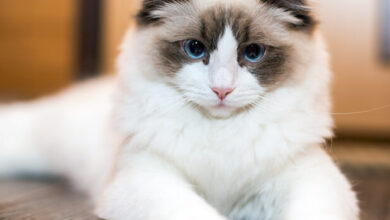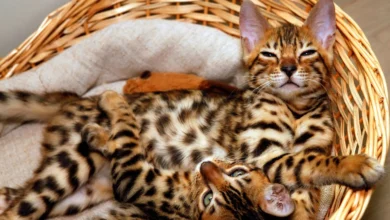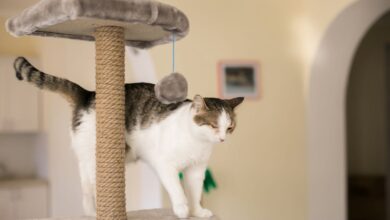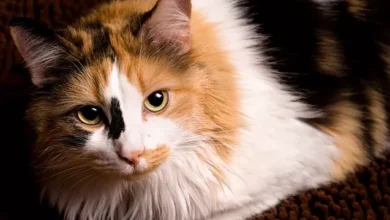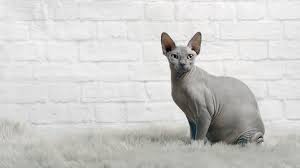Your Comprehensive Guide: Munchkin Cats

FAQ about Munchkin Cats
Can munchkin cats have babies?
Yes, munchkin cats are fertile and able to successfully reproduce. However, there are some important considerations owners should be aware of regarding munchkin breeding.
When two munchkin cats are bred together, there is a higher risk of producing kittens with a rare genetic condition called double dwarfism. Kittens with double dwarfism have extremely short legs that prevent normal mobility. These kittens unfortunately do not survive for long.
In order to avoid producing kittens with double dwarfism, responsible munchkin breeders will only breed a munchkin cat to a domestic shorthair or longhair cat that does not carry the munchkin gene. This produces a litter that is around 50% munchkin kittens and 50% normal-sized kittens without any health issues.
It is also extremely important for pet owners to spay or neuter their munchkin cats unless they are being bred responsibly. Backyard breeding can inadvertently produce kittens with genetic problems and also adds to pet overpopulation. Any owner interested in munchkin breeding should first be educated by an ethical organization and only do so under guidance.
Munchkin cats can reproduce, but responsible breeding practices are crucial to avoid health issues in kittens from two munchkin parents. Spaying/neutering pets is also advised unless a conscientious breeding program will be followed.
Is a munchkin cat a good pet?
The answer to whether a munchkin cat makes a good pet depends largely on the lifestyle and expectations of the owner. In general though, munchkin cats can absolutely thrive as beloved family pets when certain key factors are considered:
- Munchkins are full of energy and personality. They need an interactive home where they receive daily playtime, attention and mental stimulation through interactive toys.
- Their small stature means some extra care needs to be taken around young children and other animals to avoid accidents. Supervision is recommended for introductions.
- Due to their dwarfism, munchkins are predisposed to certain orthopedic and mobility health issues. Owners must be committed to providing regular vet care, proper nutrition to maintain a healthy weight, and possibly managing special needs long-term.
- While agile for their size, munchkins may not be suited for homes with very young kids or a busy lifestyle if they cannot dedicate time each day.
Provided their unique physical and social needs are met, munchkins tend to bond very closely with their approved family members. They thrive as adored lap companions with committed owners who undergo the proper research beforehand to determine if this is the right breed for their situation.
What makes a cat munchkin?
The key physical trait that defines a munchkin cat is its shortened hind legs, which are approximately half the length of a regular house cat’s legs. This unique phenotype is caused by a naturally occurring dominant genetic mutation.
On a molecular level, munchkin cats have a mutation in a single gene known as rhomboid homolog 1 (RHO1). This gene plays an important role in bone development of the hind limbs during embryonic formation.
In munchkin cats that carry the mutated RHO1 gene, there is a failure of the tibia and fibula bones in the hind legs to properly elongate before birth. This leads to shortened tibias that result in the distinctive “munchkin” legs the breed is known for.
Beyond their stature, munchkin cats do not differ anatomically or genetically from regular domestic shorthair/longhair cats in any other way. They have the same internal organs, senses, temperament, and average 15-year lifespan. It is solely their compact hindquarter shape defined by the mutated RHO1 bones that sets them apart physically as a unique breed.
What are the disadvantages of a munchkin cat?
While munchkin cats can live happy, healthy lives with the right care, their dwarfism does predispose them to certain increased health risks and lifestyle limitations compared to average housecats:
- Orthopedic issues: Hind leg abnormalities can potentially lead to patellar luxation (dislocating kneecaps), intervertebral disc disease in the lower spine, and arthritis at an earlier age than other cats.
- Mobility restrictions: Very active outdoor lifestyles may not be realistic long-term due to reduced jumping ability, climbing, etc. An enriched indoor environment is most suitable.
- Higher potential vet costs: Owners should expect possible lifelong specialized orthopedic treatments, medications, or surgeries if mobility issues arise.
- Dental problems: Small jaw size can result in Misaligned or crowded teeth requiring professional cleaning under anesthesia.
- Urinary issues: Male munchkins face a higher risk of urinary blockages due to genetic factors.
- Backyard breeding dangers: Irresponsible mating can produce kittens with serious mobility impairments if both parents carry dwarfism.
With a lifetime commitment to addressing health/lifestyle needs proactively, most munchkin cats can avoid disadvantages. However, owners must understand that this requires extra care compared to average domestic breeds.
Can munchkin cats have babies?
Let me provide a more detailed response regarding munchkin cats’ ability to successfully reproduce:
While munchkin cats themselves are fully fertile, there are genetic risks to consider if both parents carry the dwarfing gene. When a munchkin cat is bred to another munchkin, it increases the likelihood that kittens will inherit a double dose of the mutation.
Kittens with double dwarfism, sometimes called double munchkins, have significantly shortened limbs that prevent normal mobility. Their legs are so small that it becomes difficult for the kittens to walk, balance, feed, and use the litterbox independently. Unfortunately, these kittens rarely survive for more than a few weeks due to underlying health complications.
To avoid producing double dwarf kittens, responsible munchkin breeders will only mate a munchkin to a domestic shorthair/longhair without the dwarfing gene. This results in a genetic mix of 50% standard-sized kittens and 50% munchkin kittens with limbs proportionate to function properly.
Munchkin cats are fertile, but breeding two together risks serious health issues in kittens. Ethical programs breed munchkins with non-carrier cats to maintain mobility and genetic diversity in subsequent purebred generations.
Munchkin Cat Personality
Munchkin cats have unique personalities that are as intriguing as their short legs. While they may look intimidated by their lack of height, munchkins are actually quite confident and outgoing cats. Their small stature does not deter them from being bold and curious.
Munchkins tend to be playful, inquisitive and sweet-natured. They bond closely with their human companions and enjoy interactive playtime using toys. Due to their lower center of gravity, munchkins are adept at jumping and climbing. Their diminutive legs do not compromise on agility. However, their small size means munchkins enjoy being cradled and carried.
When socialized from a young age, munchkins adjust well to living with other pets, including dogs. Their friendly disposition makes them amenable to handling children as young as 5-6 years under supervision. To preserve their zestful energy levels indoors, munchkins need regular play and exercise.
Munchkin Cat Lifespan
Like other domestic cat breeds, purebred munchkin cats enjoy a healthy lifespan of 12-15 years on average when provided with good nutrition, medical care, and a stress-free environment. Some reputable breeders even report munchkins living up to 17-18 years.
Their petite frame does not necessarily translate to reduced longevity compared to regular cats. Veterinary expertise now confirms that a munchkin’s short legs are not associated with any life-limiting genetic health impacts. Many early concerns about impaired mobility prohibiting quality of life have also been disproven over time.
As long as a munchkin maintains a stable weight and receives preventive healthcare, owners can expect their companion to age gracefully with normalized aging processes equivalent to other domestic cat breeds. With committed care, the “little lions” can experience their golden senior years free of premature mortality risks linked purely to dwarfism.
Fluffy Munchkin Cat
Beyond their diminutive limbs, munchkin cats manifest in a spectrum of coat colors, patterns, and textures. One appealing variant with a double dose of cuteness is the fluffy munchkin.
Fluffy munchkins have a coat that is extra soft and voluminous due to a gene coding for an increased abundance of guard hairs and undercoat fibers. Their fuzzy fur resembles that of angora rabbits because of the added floofiness factor. The dense fur helps regulate body temperature in spite of their lack of subcutaneous fat deposits or thick pelt typical of natural breeds.
Coat colors range from solids like black, blue, and cream to tortoiseshell, and calico patterns. While fluffier all over, the hair is still low-maintenance without mats or tangles. Regular brushing 2-3 times a week removes loose hair and distributes skin oils along the coat.
Fluffy munchkins thrive in indoor environments, especially in cooler climates. Their adorable appearance belies an energetic, playful spirit underneath all that fur. With routine grooming, fluffballs stay looking plush and huggable for devoted pet parents.
Munchkin Cat Adoption
For prospective adopters keen on welcoming a munchkin into their home, the adoption process entails evaluating shelter litters or working with an ethical breeder. Either route requires extensive research beforehand on suitability, commitment, and responsibilities.
Reputable cat rescues and shelters often receive mixed-breed or purebred munchkin litters from accidental matings or surrenders. Adopting such organizations not only saves a furry life but also opens space for another homeless cat. Screening adopters weed out irresponsible or impulse decisions.
When sourcing directly from a breeder, vetting credentials, health certifications, and humane operations become crucial. The Cat Fancier’s Association currently oversees munchkin breeding standards to promote welfare. Be wary of low-cost litters advertising on non-specialized sites as by-products of mass commercial kennels should raise red flags.
Introverts or solo households may find the energetic, attention-seeking munchkin exceeds their lifestyle needs. Consider all family members’ consent, lifestyle changes, financial commitment in the next 15+ years before binding any adoption agreement. Prepared parents deliver a loving forever home for these charismatic dwarf cats.
Munchkin Cat Health Problems
While free of genetic defects impacting mobility, certain health risks are still possible for purebred munchkin cats. As with other pedigree lineages, conscientious breeding programs screen for heritable conditions to curb issues. Common health areas for owners to watch are:
Intervertebral Disk Disease:
The shortened spine predisposes munchkins to IDD, causing neck/back pain from ruptured disks. Early obesity adds pressures. Proper diet, stress relief, regular checks help mitigate risks. Physical therapy provides relief.
Patellar Luxation:
Loose kneecaps have a higher rate of dislocating out of place compared to regular cats. Slight lameness may result but surgical correction addresses severe cases.
Dental Issues:
Small jaw size correlates to possible misaligned or crowded teeth warranting professional cleaning. Early oral hygiene prevents infection, abscesses.
Urinary Tract Problems:
Struvite crystal formation blocking urine flow tends to afflict male cats, advising increased water intake through fountains. Dietary prescription prevents recurrence.
Overall, a conscientious munchkin breeder guarantees certifications denoting temperate histories several generations back. Coupled with lifelong wellness care from adopters, these loyal companions lead fulfilling lives despite any predisposition to manageable health issues.
